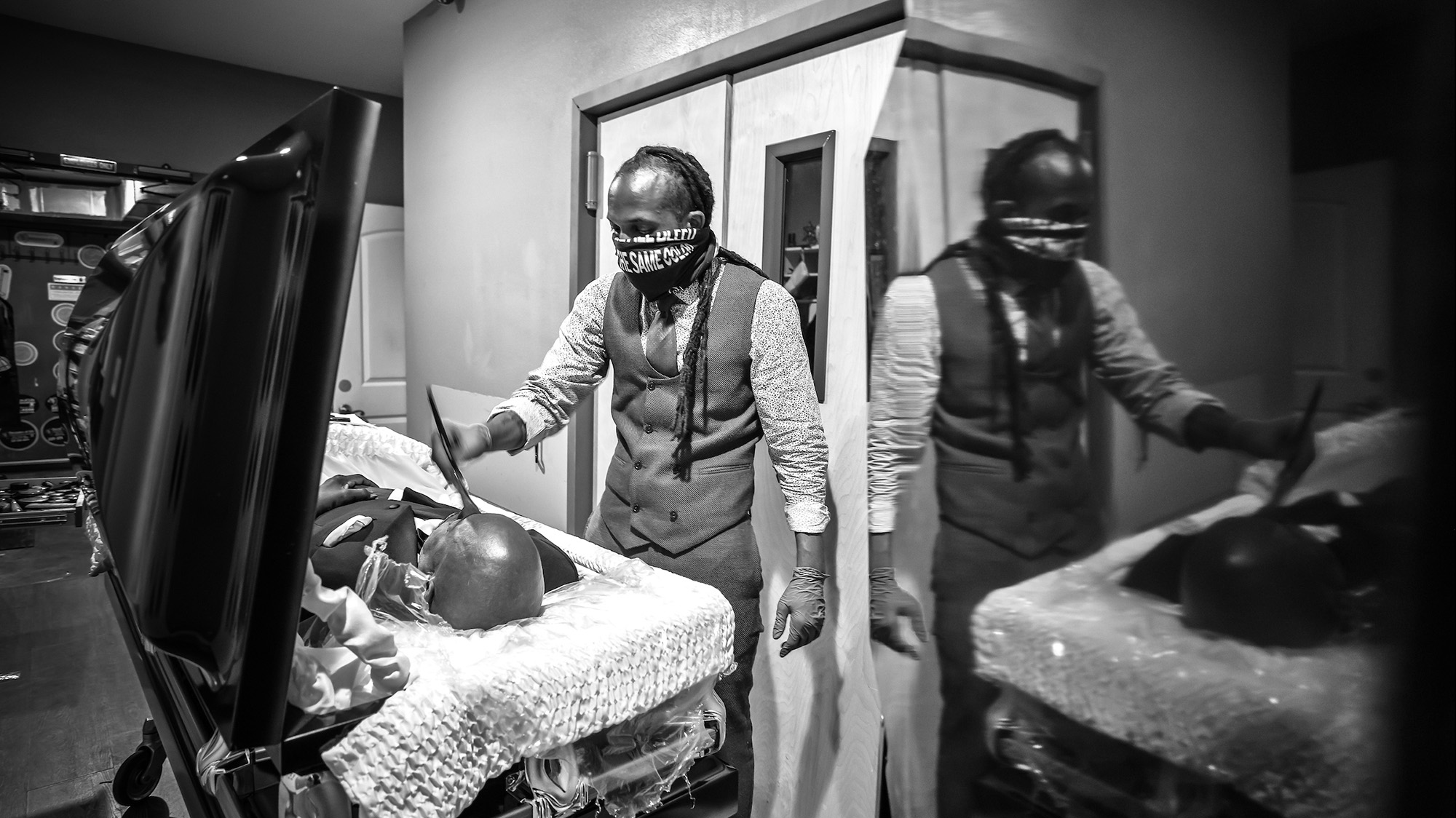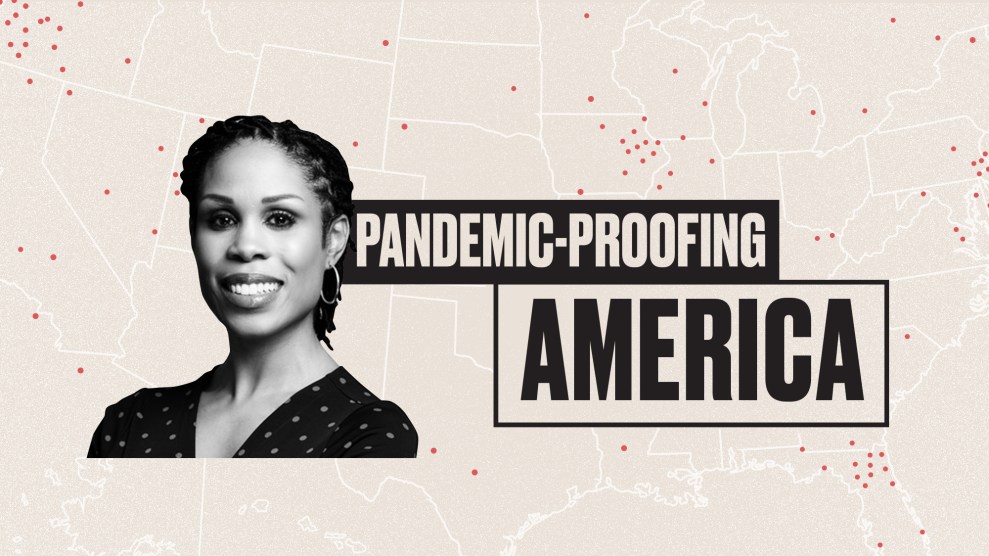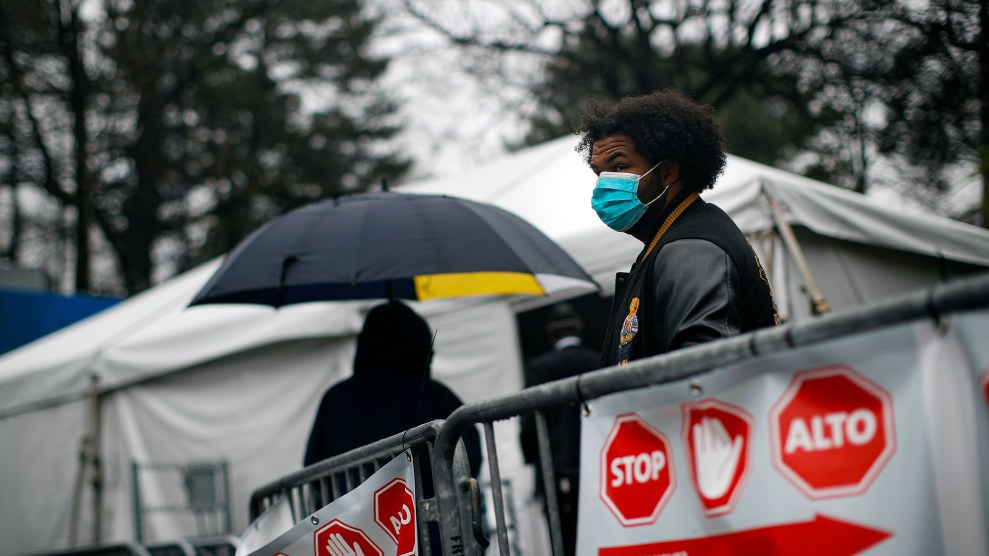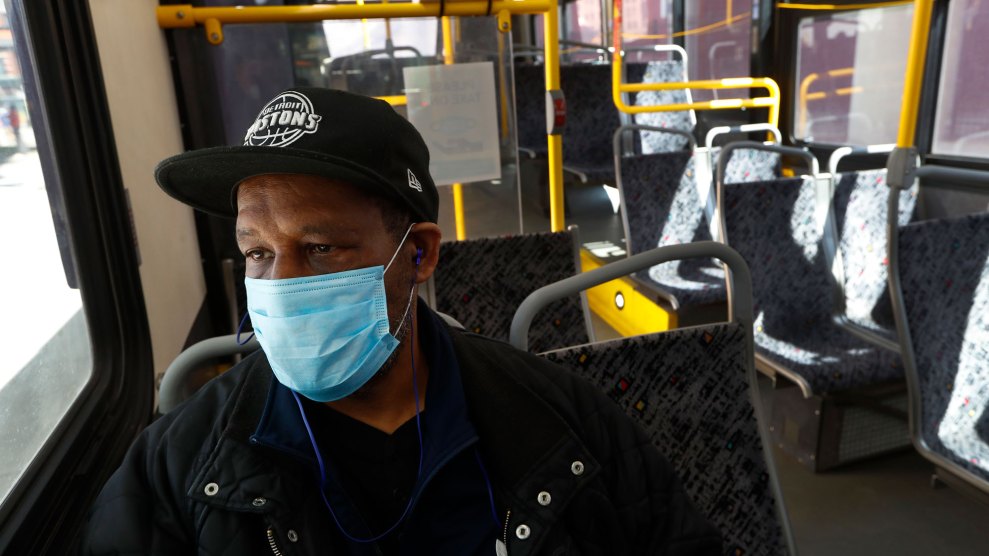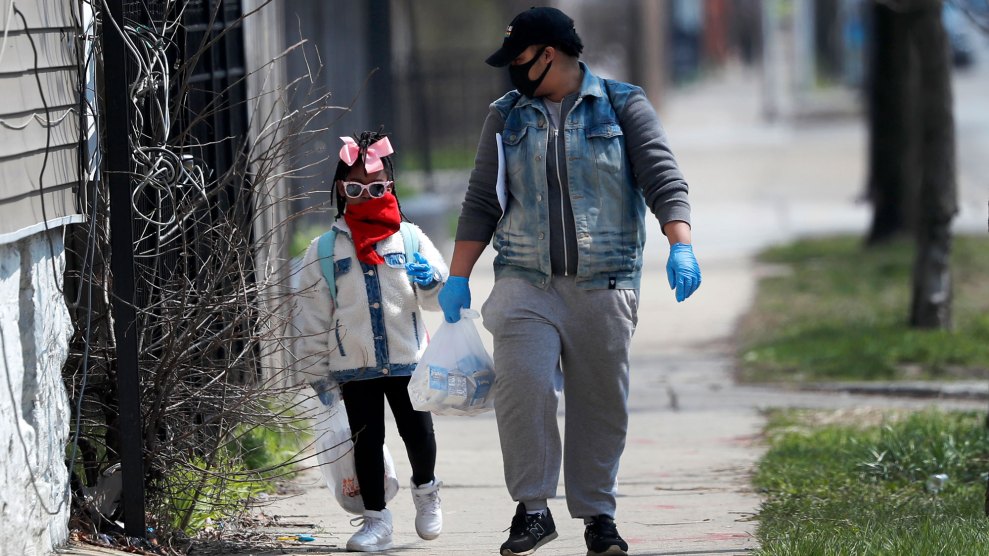Courtney Baloney’s funeral home sits in St. James Parish, Louisiana. It’s not far from New Orleans. It’s also not far from the more than 100 petrochemical facilities that line a stretch of the Mississippi River between New Orleans and Baton Rouge, an area known to industry types as the “Petrochemical Corridor” and to locals as “Cancer Alley.”
The health of people living near the fence line of industrial facilities in Cancer Alley, who are predominately Black, has been negatively impacted for years by the exposure to high levels of toxic fumes—and now, in the middle of a pandemic, things are even worse. The river parishes served by Baloney’s Treasures of Life funeral home have been identified as coronavirus hotspots, and some scientists are now researching how industrial pollution could be making locals more vulnerable to the virus.
In early April, Louisiana Gov. John Bel Edwards identified the Black communities in St. John the Baptist Parish as a having an alarming death rate; the death rate in nearby St. James Parish was not far behind. While this reflects a national trend in which people of color have been disproportionately devastated by the coronavirus, these two small communities, with roughly 60,000 residents combined, so far have seen more than 2,250 confirmed COVID-19 cases and 130 deaths, according to the Louisiana Department of Health.
Baloney has seen this crisis up close. While first responders are considered essential workers in Louisiana, Baloney argues it was a mistake to leave funeral home directors out of that designation. He refers to them as the “last responders”: They are the last people to deal with the dead before their final send off. It’s a job Baloney believes is essential.
“A last responder isn’t the person just responding last because they’re slow,” Baloney says. “They’re the only person to respond because they’re the only person who does what a last responder does: cater to, care for, and treat and dispose of dead human remains. That is something that’s very sacred, very ritualistic.”
He adds, “We’re not going to respond as if we’re saving a life. We’re going to respond to bring closure to the end of life.”
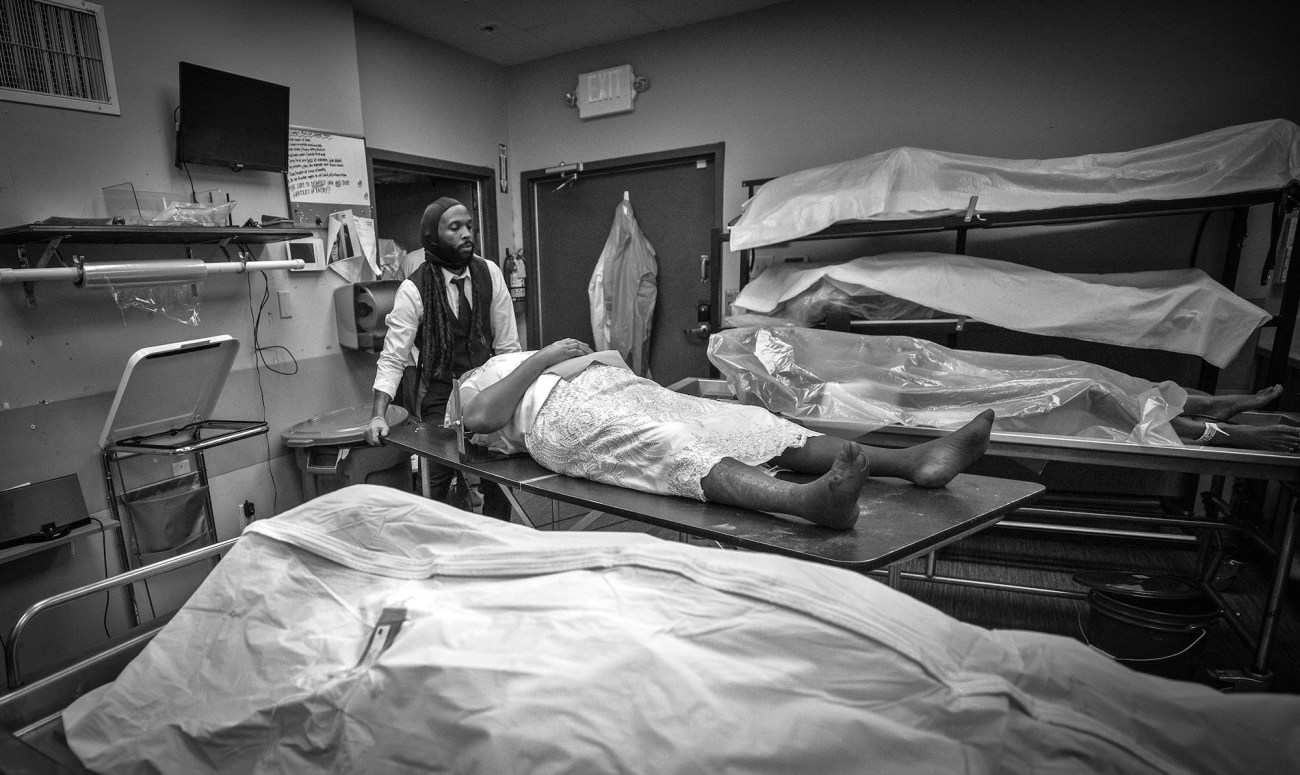
Courtney Baloney at his Treasures of Life funeral home.
In mid-March, as Louisiana faced one of the steepest curves of COVID-19 infections in the country, Treasures of Life had up to 24 bodies at one time. Before the pandemic, seven bodies was the most Baloney had at once. His funeral home is one of the few in the area that will embalm COVID-19 victims; the bodies can potentially emit an “outgassing” that is thought to be contagious. (The science on handling bodies with COVID-19 is unsettled.)
When he got the first body thought to have died of COVID-19, Baloney took no risks. “The coroner tells me, the test hasn’t come back yet, but you can bring him into your care. Why would I do that knowing the risk? This is the first case in St. James Parish,” Baloney recalls. Though apprehensive, he felt obligated to give the same care to COVID-19 victims as he does to all his other customers. As a stickler for taking precautions when handling any dead body, he had lots of protective gear on hand. So he and his staff suited up in full PPE, head to toe, when receiving the body.
At the same time as he was witnessing his community take a harder hit from the virus than most, Baloney was torn: He wanted to join the protest against police brutality in the name of George Floyd. But work remained. He was pleased that so many people from Baton Rouge to New Orleans took to the streets, fighting for racial justice.
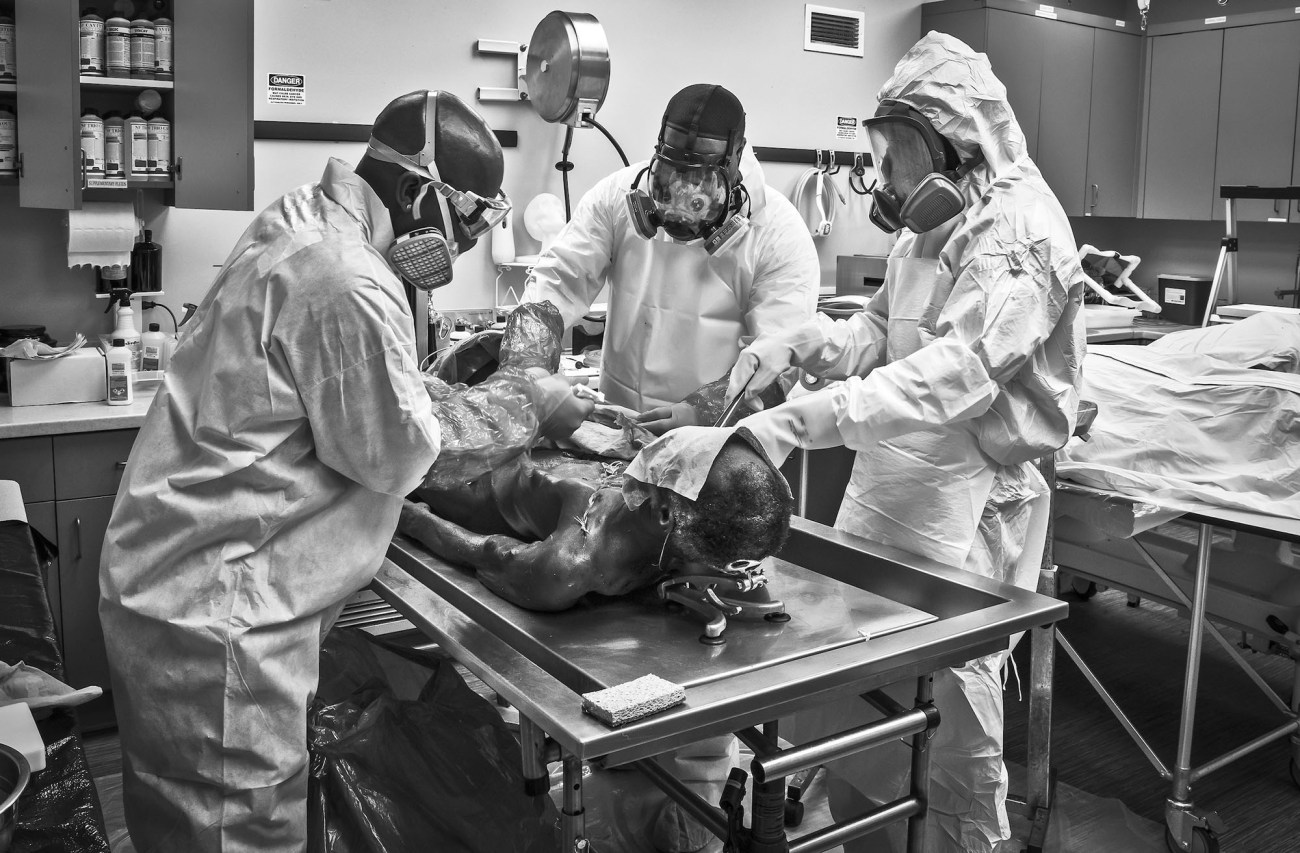
Baloney and his team wear masks and full PPE to work on the first body they’d seen that was confirmed to have COVID-19.
While things slowed with a statewide lockdown from late March through early June, bodies began piling up again a few weeks after the state lifted stay-at-home restrictions. Though the workload now isn’t what it was at its peak, the funeral home is still much busier than usual. Many bodies haven’t been classified as COVID-19 victims, but Baloney believes they died of the virus and he takes extra precautions with all the bodies.
Despite the risks and all these challenges, Treasures of Life remains a full-service funeral home. Baloney, a third-generation embalmer, goes above and beyond to care for grieving families—just one reason his business was flourishing even before the pandemic. After viewings at Treasures of Life, he or his staff often play a role at the funeral service, which includes funeral processions that usually make their way along River Road, through Louisiana’s plantation country—yet another stark reminder of America’s historic and ever-present systemic racism.
“I have been working on a photo series about Cancer Alley communities since 2016,” says photographer Julie Dermansky. “When the pandemic struck I wanted to show how it was ravaging the Black community. While news reports cited a higher death rate of African Americans, I wasn’t seeing images published of what that looked like in the South, so I started this series.”
She continues, “I was fortunate that Baloney, too, felt that the work he was doing, to help his community deal with the pandemic, should be documented and he let me start photographing when we first met on May 29 and we continued shooting through August.”
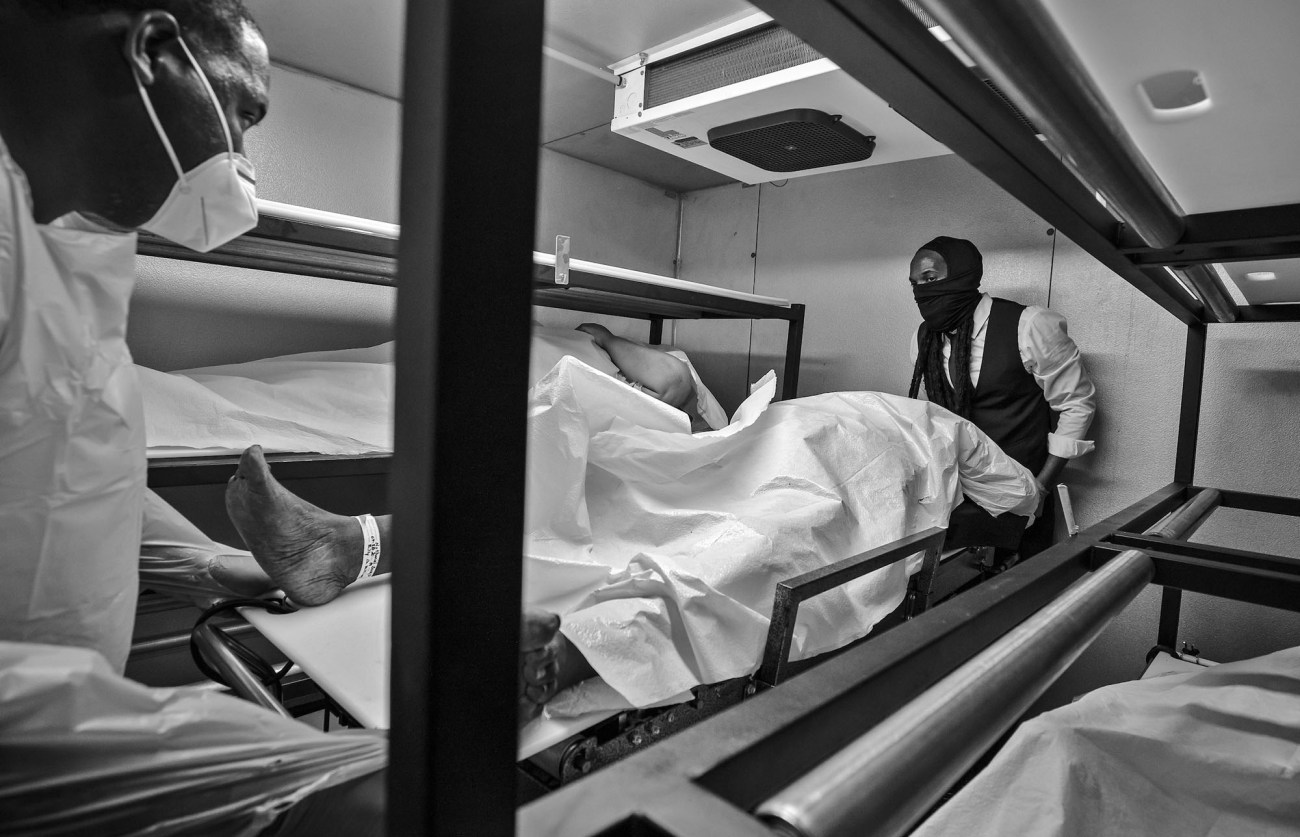
Bodies are stored in a walk-in refrigerator at Treasures of Life.
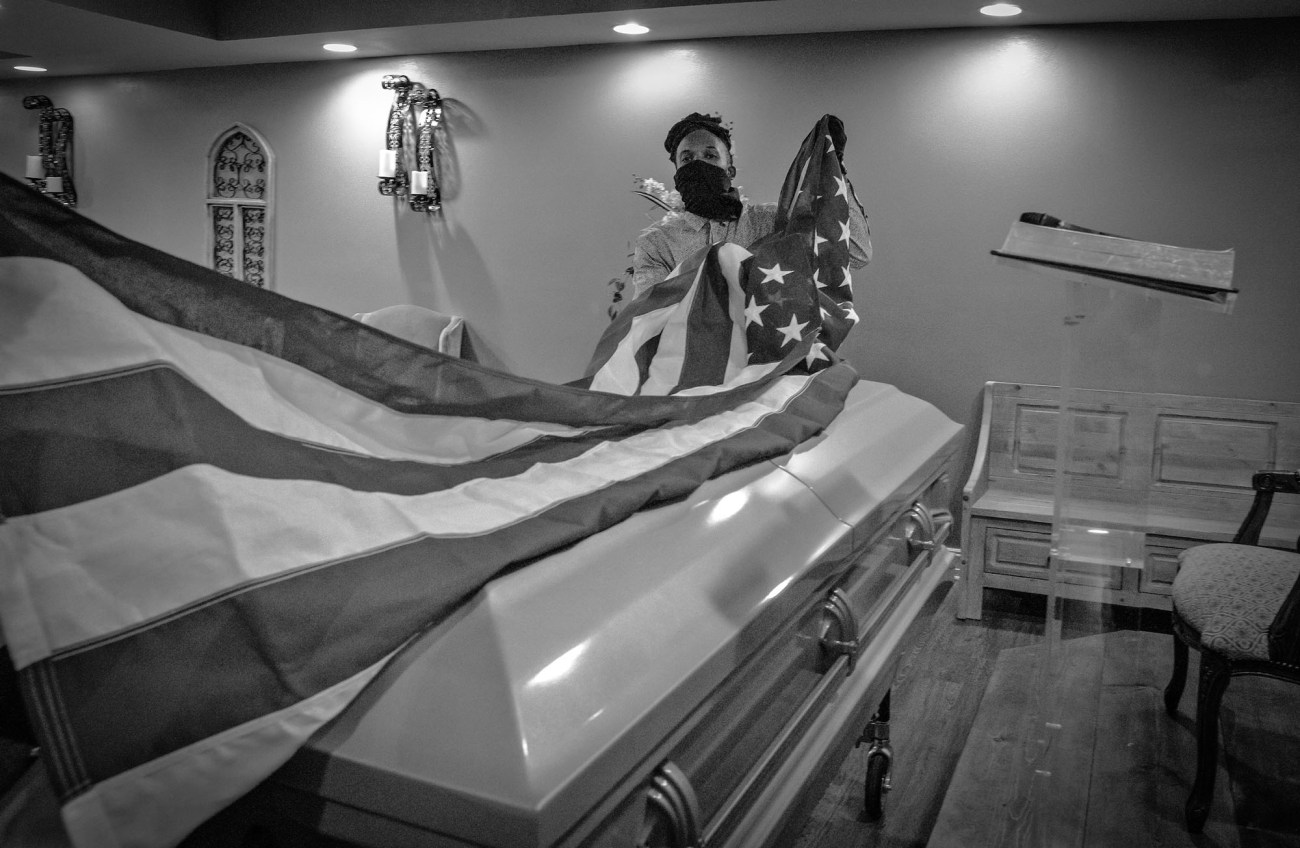
Baloney removes an American flag from the casket of a veteran who died of COVID-19 before folding and giving it to family members.
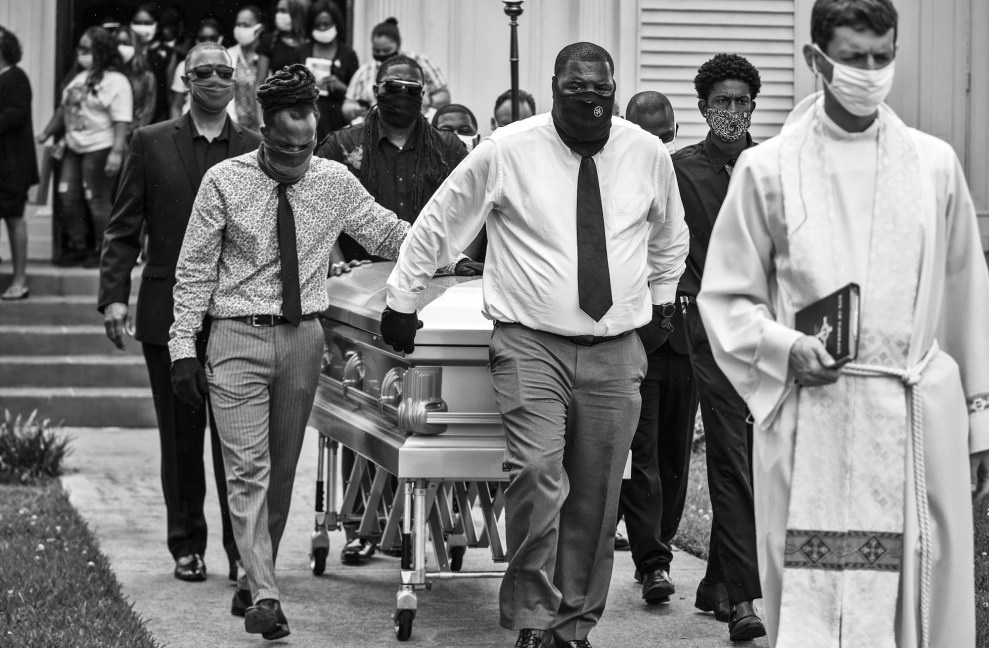
Baloney (left) is among the men escorting a casket in one of the first funeral services held in St. Philip Catholic Church in St. James Parish after Louisiana’s stay-at-home restrictions were lifted.
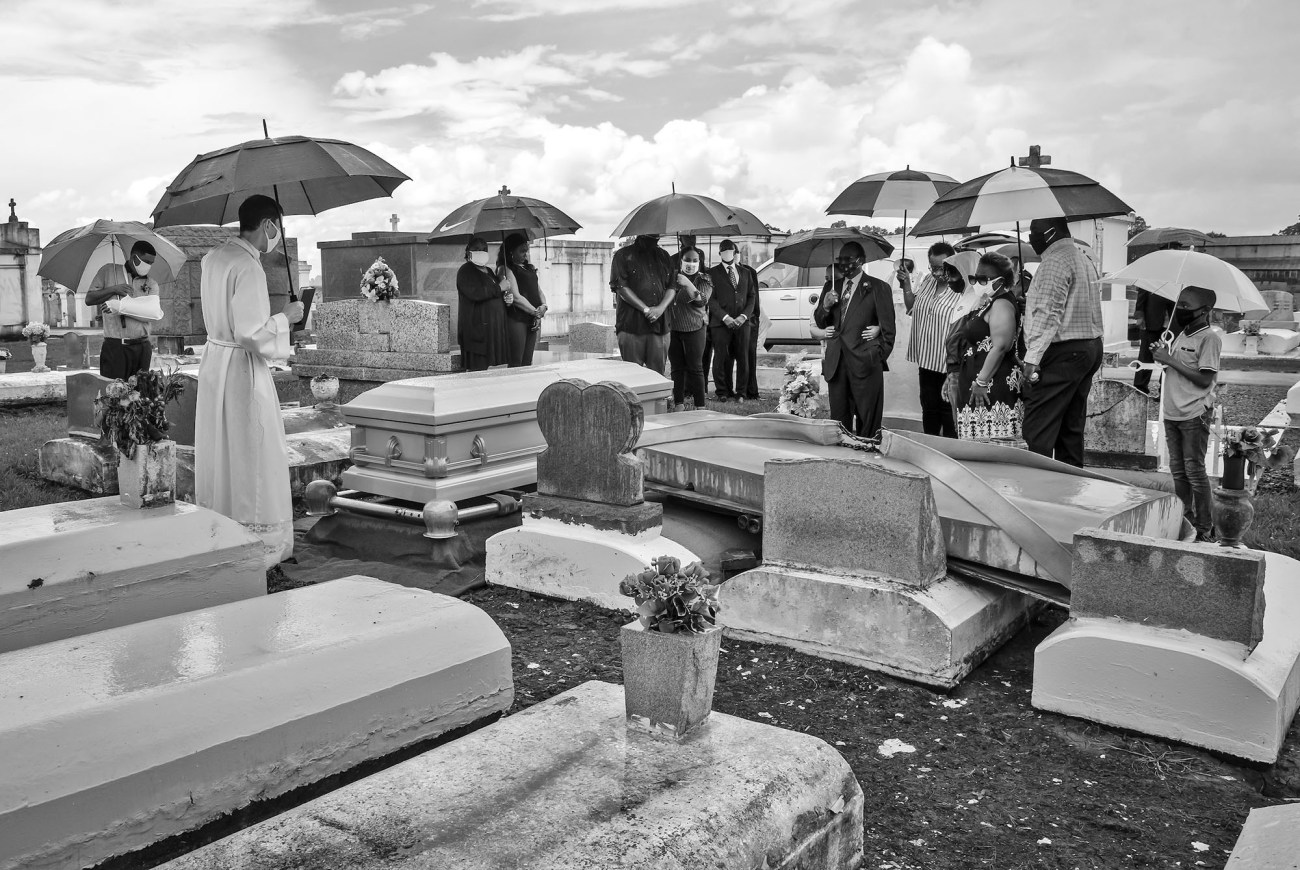
A funeral takes place at St. Philip Catholic Church.
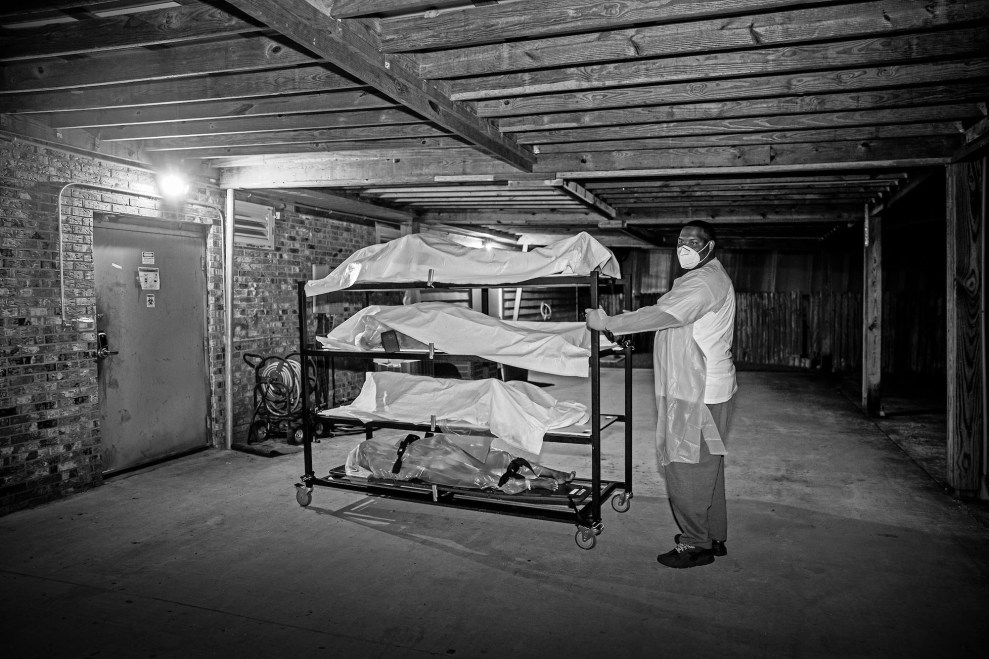
Bodies are moved to storage in a walk-in refrigerator at Treasures of Life.
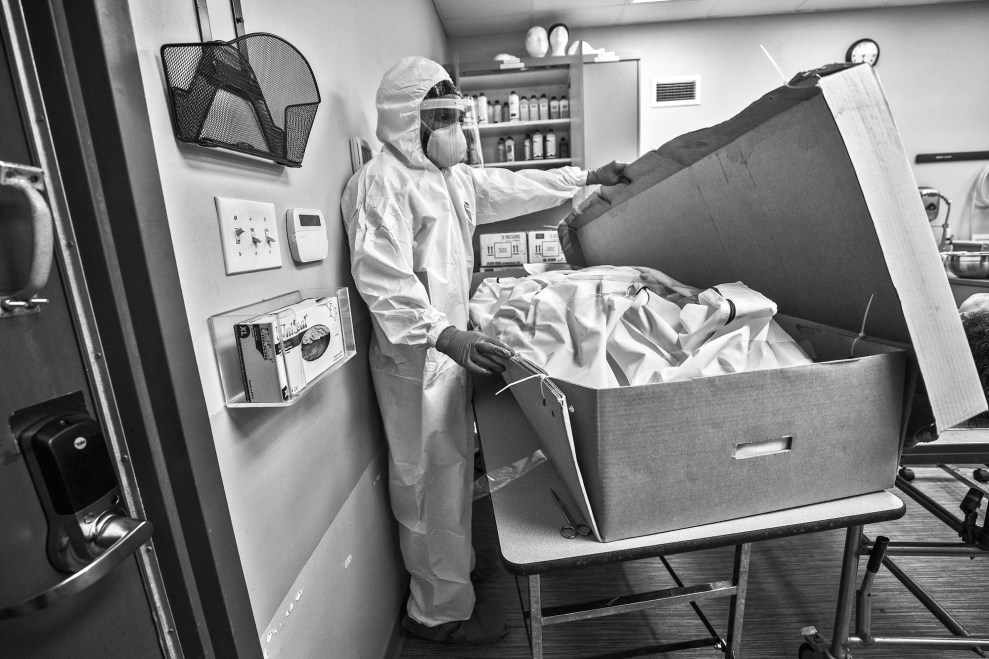
Baloney opens a box containing a victim of COVID-19.

Bodies fill the work room at Treasures of Life.

Baloney takes a call in the storage closet at Treasures of Life.
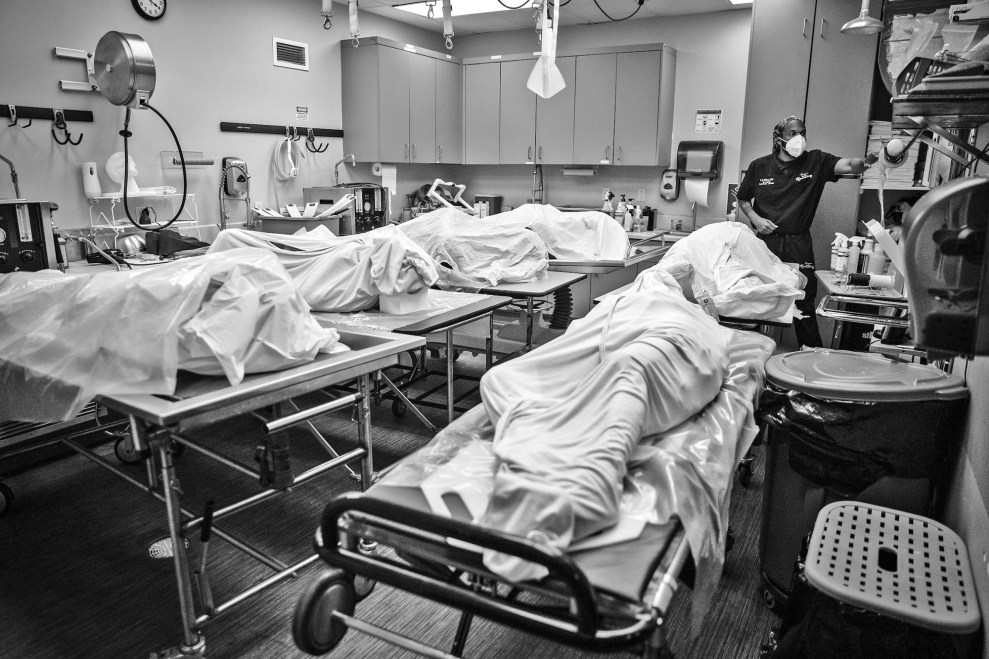
Baloney works in a room full of coronavirus victims.

A body is loaded into a hearse at University Medical Center New Orleans, LCMC Health.
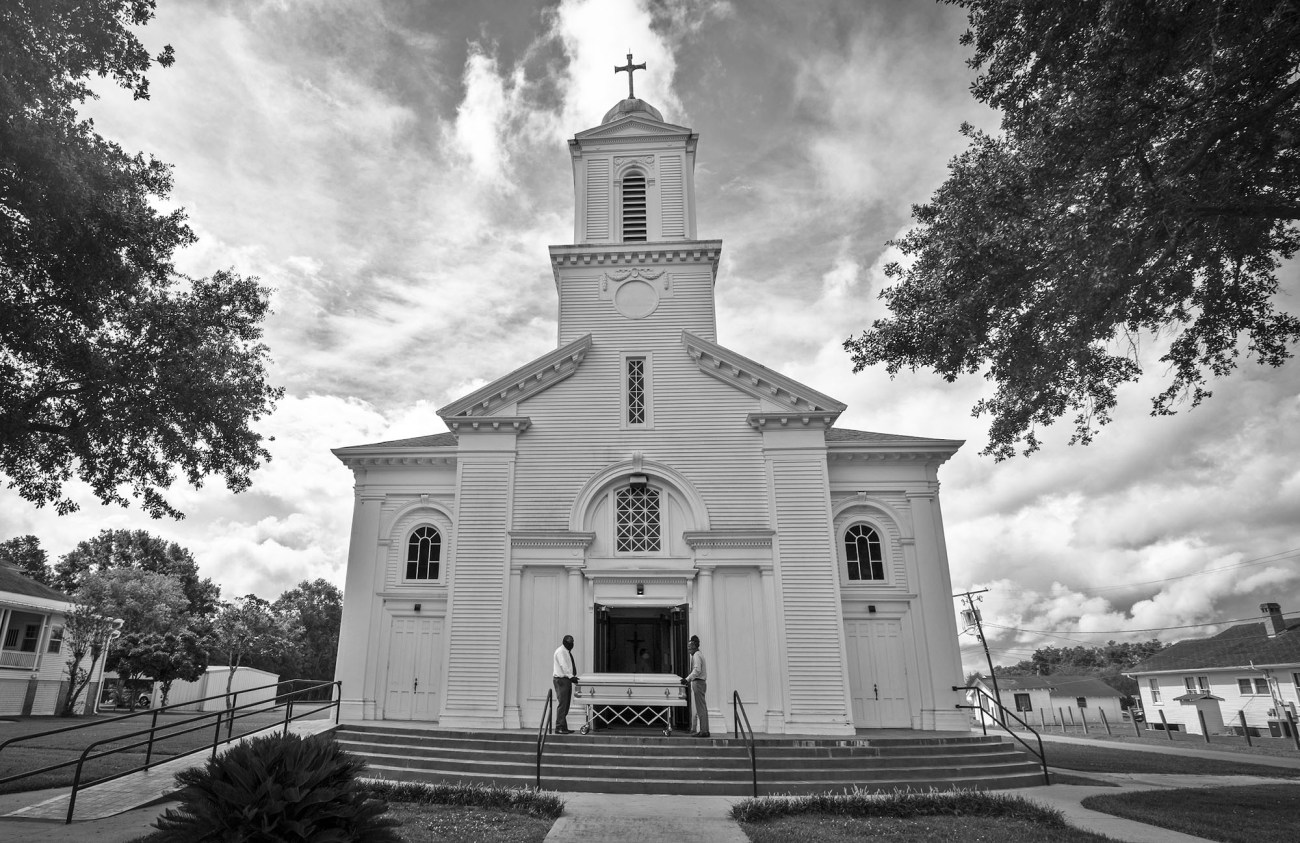
St. Philip Catholic Church.
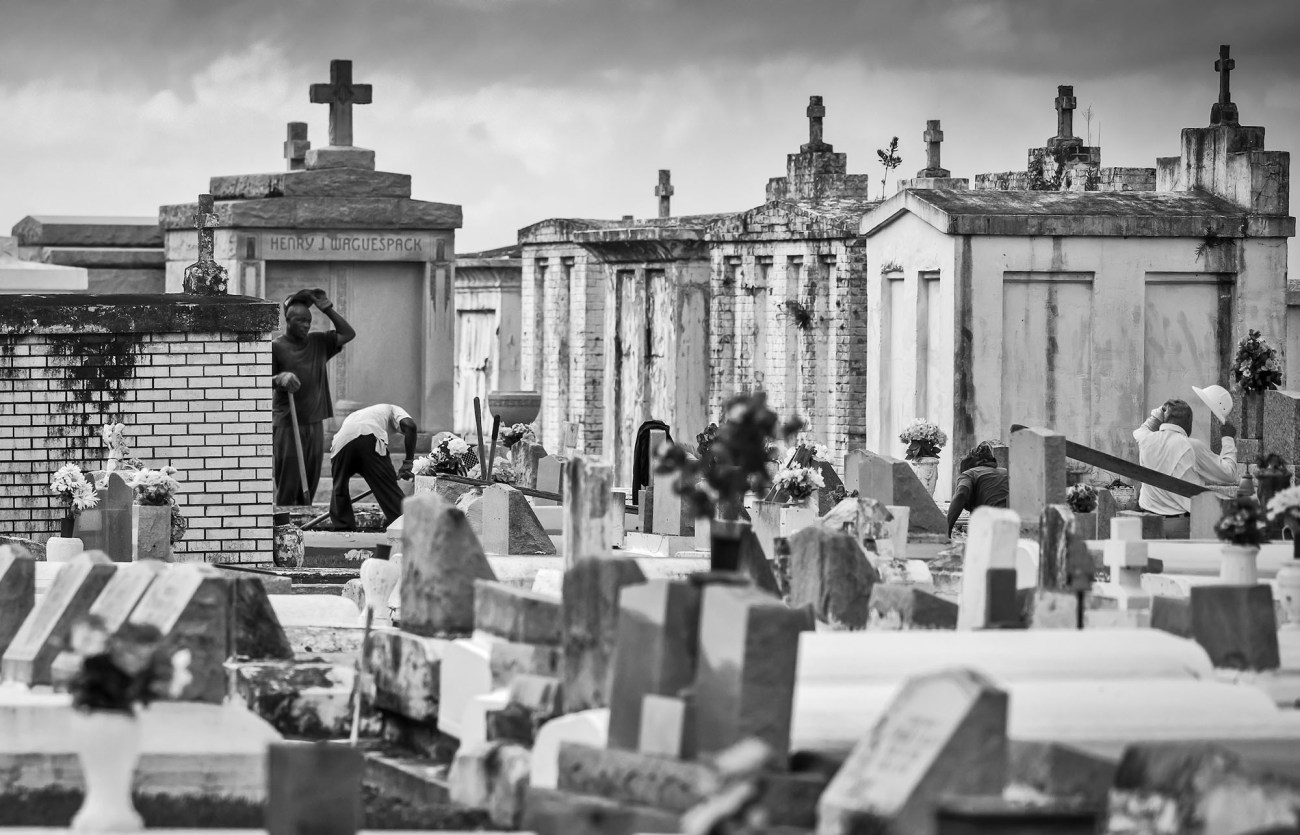
Workers tend to a gravesite behind St. Philip Catholic Church.
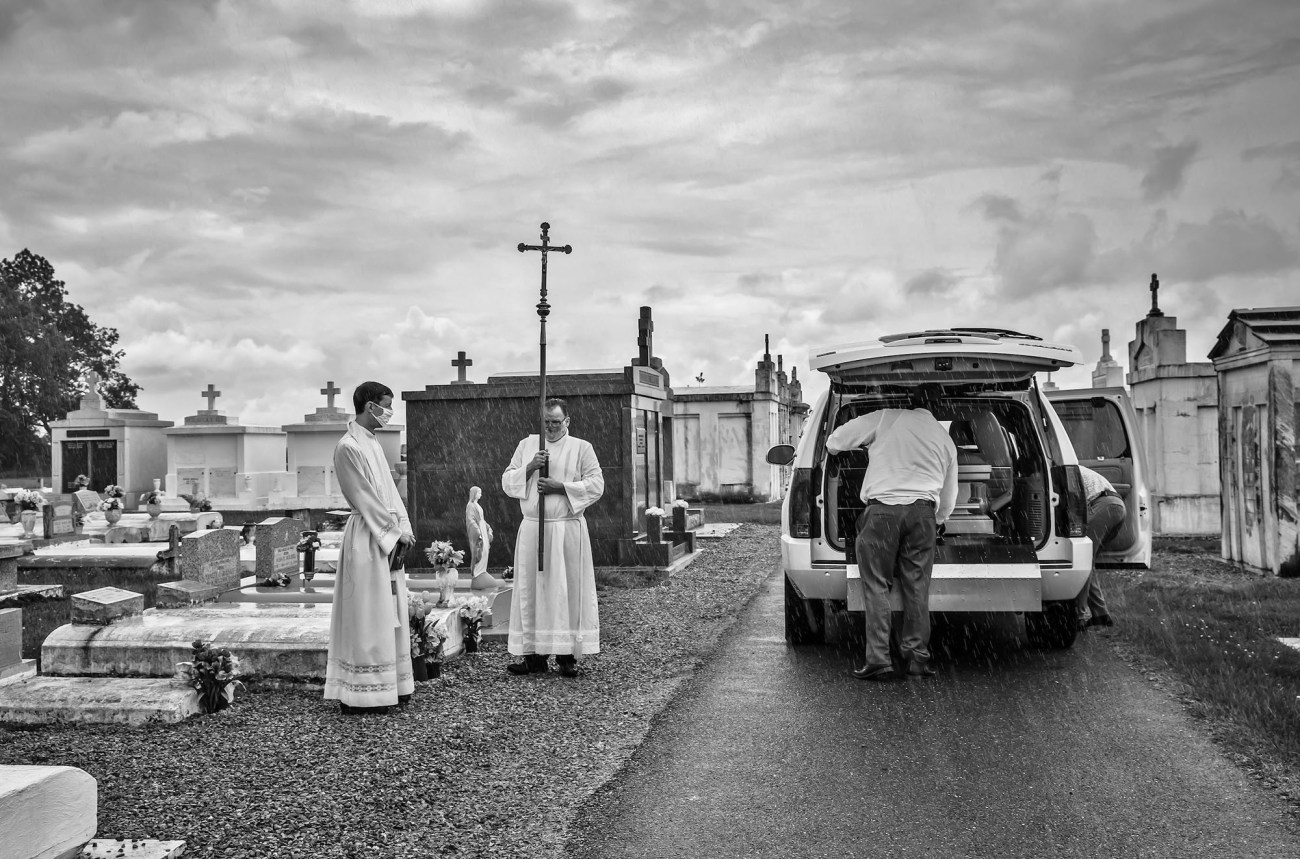
A funeral wraps up in the rain at St. Philip Catholic Church.


Baloney pays his respects to a family at a funeral at St. John the Baptist Catholic Church.
